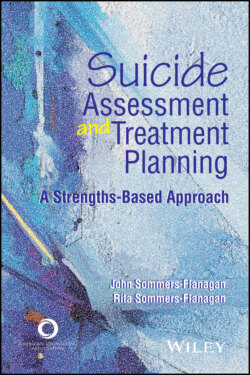Читать книгу Suicide Assessment and Treatment Planning - John Sommers-Flanagan - Страница 53
Suicide-Related Ethical Issues
ОглавлениеImagine you are working as a school professional. Three high school students suddenly pop into your office. They take turns speaking, saying things like the following:
“Serena is talking about suicide.”
“She posted a creepy thing about death on Instagram that’s freaking us out.”
“We think you should talk with her.”
“She’s been drinking way too much. We’re totally scared.”
This case scenario highlights the complexities associated with decision-making around suicidality. Many questions arise. Should you summon Serena from class and meet with her? Serena is 16 years old; does that mean you have a responsibility to contact her parents? What is the school district’s policy on suicide risk assessment? If Serena admits to suicidal ideation but assures you she will not act on her thoughts, what discretion do you have as to whether or not you contact her parents? If Serena denies suicidal ideation and says her friends are being silly and stupid, do you have any duty to protect? At a minimum, cases like Serena’s reveal the importance of knowing your school’s (or agency’s) suicide assessment and disposition protocol (including whom to contact first). Here we cover ethical considerations specific to suicidality and related emergent or dangerous clinical concerns.
